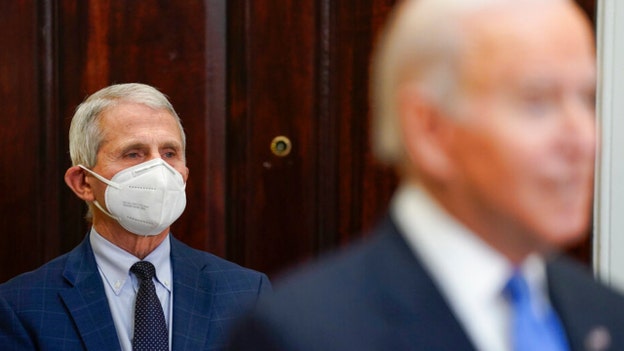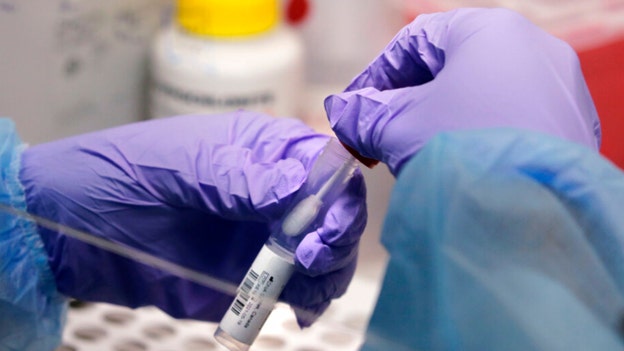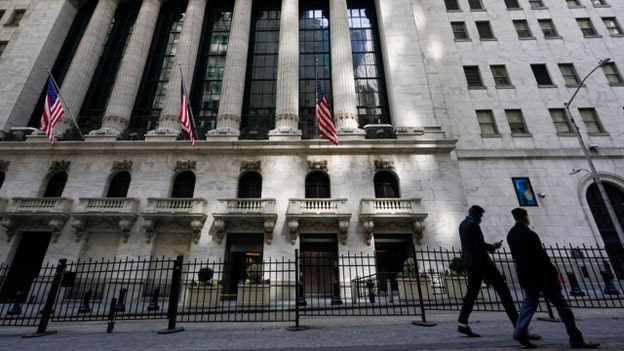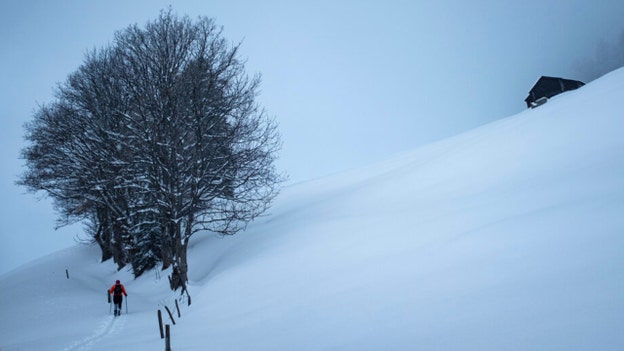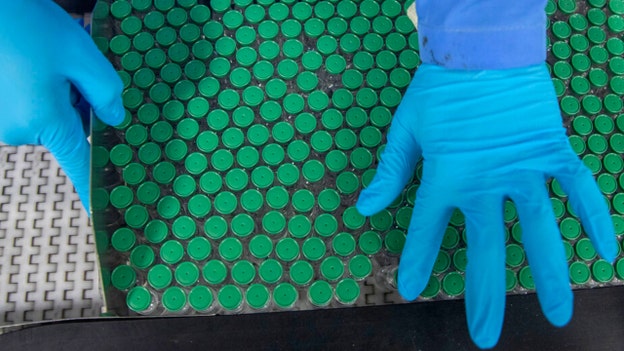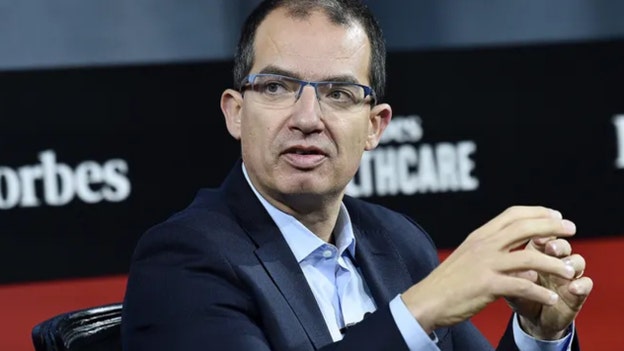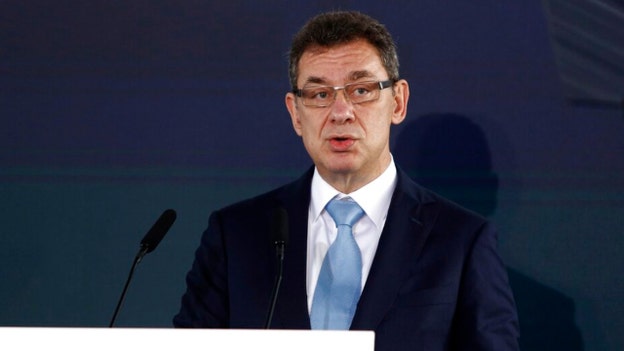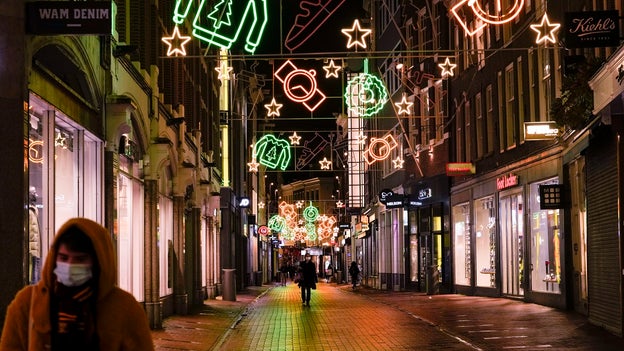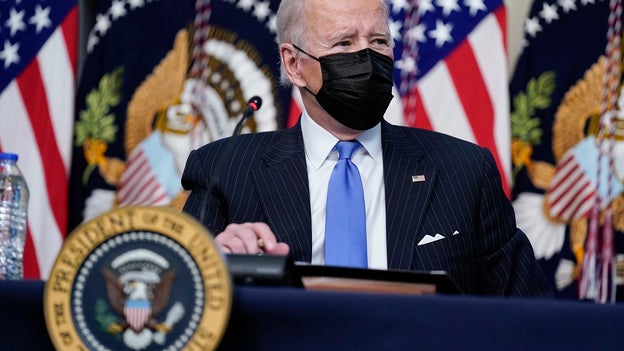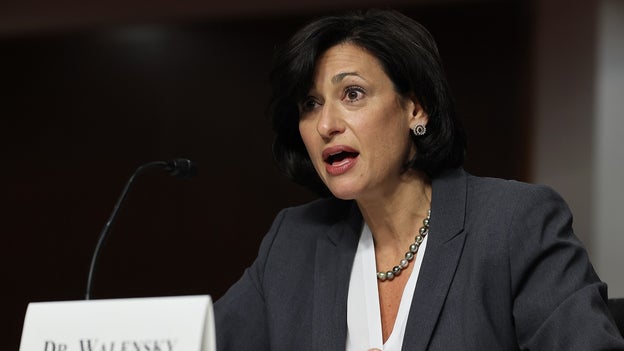Omicron variant: As US braces, CDC updates booster guidance: LIVE UPDATES
CDC Director Dr. Rochelle Walensky says the new omicron variant of the coronavirus "emphasizes the importance of vaccination, boosters, and prevention efforts needed to protect against COVID-19."
Coverage for this event has ended.
Speaking at a Tuesday press briefing, the White House COVID-19 Response Team said that vaccination would be beneficial in potentially fending off the omicron COVID-19 variant.
"This new variant is a cause for concern, but not panic," White House Coronavirus Response Coordinator Jeff Zients said, echoing comments made by President Biden. "Because we now have the tools we need to confront this variant and continue to make progress in our war against the virus."
Following Zients, National Institute of Allergy and Infectious Diseases (NIAID) Director Dr. Anthony Fauci went over what was known about the variant, which was first reported in Botswana and flagged to the World Health Organization (WHO) in South Africa three days after.
As of this morning, the White House chief medical adviser said that there were 226 cases of omicron in 20 countries.
"And, I think you're going to expect to see those numbers change rapidly. Importantly, it has not yet been detected in the United States," he added.
Fauci said that omicron's mutational profile is very different from other variants of interest and concern and assured that the U.S. Centers for Disease Control and Prevention (CDC) is implementing enhanced surveillance using the National SARS-CoV-2 Strain Surveillance (NS3) Program and that the U.S. Department of Health and Human Services (HHS) was communicating with the South African government.
"In vitro neutralization data with vaccine sera, convalescent plasma, monocolonal antibodies and oral antiviral treatments anticipated in two to four weeks (possibly sooners)," a slide on the screen read.
Fauci pointed out that pending additional data the impact of the variant "remains speculative," highlighting that while omicron may have increased transmission and partial immune escape may occur, vaccines likely will still protect against severe disease.
"So there's every reason to believe, as we talk about boosters, when you get a level high enough, that you are going to get at least some degree of cross-protection, particularly against severe disease," he concluded.
Following Fauci, CDC Director Dr. Rochelle Walensky said that the agency remains "ready to be proactive" as new data, science and variants evolve.
Walensky said the agency was working with airlines, state health officials and public health partners as news about omicron continues to break.
She urged that right now is the time to get vaccinated against COVID-19 and said protection will "at least in part" be beneficial against omicron.
"We don't know everything we need to know yet about the omicron variant, but we know that vaccination is a safe an effective way to protect yourself from severe illness and complications from all known Sars-CoV-2 variants to date," Walensky added.
The best ways to protect oneself, according to Fauci, include getting vaccinated and/or boosted, using facemasks, avoiding crowds and poorly ventilated spaces, going outdoors, social distancing, washing one's hands often and testing and isolating if appropriate.
After a slow start, the United States has improved its surveillance system for tracking new coronavirus variants such as omicron, boosting its capacity by tens of thousands of samples per week since early this year.
Viruses mutate constantly. To find and track new versions of the coronavirus, scientists analyze the genetic makeup of a portion of samples that test positive.
They’re looking at the chemical letters of the virus’s genetic code to find new worrisome mutants, such as omicron, and to follow the spread of known variants, such as delta.
It’s a global effort, but until recently the U.S. was contributing very little. With uncoordinated and scattershot testing, the U.S. was sequencing fewer than 1% of positive specimens earlier this year. Now, it is running those tests on 5% to 10% of samples.
“Genomic surveillance is strong,” said Kelly Wroblewski, director of infectious diseases at the Association of Public Health Laboratories.
Contributing to the effort are nearly 70 state and local public health labs, which are sequencing 15,000 to 20,000 specimens each week. Other labs, including those run by the Centers for Disease Control and Prevention and its contractors, bring the total to 40,000 to 80,000 weekly.
Nine months ago, about 12,000 samples each week were being analyzed in this way.
“We’re in a much, much better place than a year ago or even six or nine months ago,” said Kenny Beckman of the University of Minnesota, who credited federal dollars distributed to public and private labs. He directs the university’s genomics laboratory, which now sequences about 1,000 samples a week from Minnesota, Arkansas and South Dakota. A year ago, the lab did no sequencing.
Relying on $1.7 billion in President Joe Biden’s coronavirus relief bill, the U.S. has been setting up a national network to better track coronavirus mutations.
Still, about two dozen countries are sequencing a larger proportion of positive samples than the U.S., said Dr. William Moss of the Johns Hopkins Bloomberg School of Public Health. Omicron’s emergence could “stimulate the United States to do this better.”
“I think we still have a long way to go,” Moss said.
Some states are sequencing only about 1% of samples while others are in the range of 20%, noted Dr. Phil Febbo, chief medical officer for Illumina, a San Diego-based company that develops genomic sequencing technologies.
“We could be more systematic about it and more consistent so we ensure there are no genomic surveillance deserts where we could miss the emergence of a variant,” Febbo said.
Aiding the surveillance effort, standard PCR tests that use nasal swabs sent to laboratories can detect a sign that someone probably has the omicron variant. If a PCR test is positive for only two of the three target genes — a so-called S-dropout test result — it’s a marker for omicron even before the extra step of genetic sequencing to prove it.
“It’s fortuitous,” said Trevor Bedford, a biologist and genetics expert at Fred Hutchinson Cancer Research Center. “If you need to do sequencing to identify the variant you’re always going to be lagged a bit and it’s going to be more expensive. If you just rely on this S-dropout as identification then it’s easier.”
He said other variants also have sparked this quirk in PCR test results, but not the delta variant. With delta so dominant in the U.S. right now, an S-dropout result will get noticed, Bedford said. (Bedford receives funding from the Howard Hughes Medical Institute, which also supports The Associated Press Health and Science Department.)Dr. Anthony Fauci, the nation’s top infectious disease expert, said it is “inevitable” that omicron will make its way into the United States.
Many experts said it’s probably already here and will be picked up by the surveillance system soon. But the question is, then what?
University of Wisconsin AIDS researcher David O’Connor noted: “We don’t have the sorts of interstate travel restrictions that would make it possible to contain the virus in any one place.”
Instead, genomic surveillance will tell officials if omicron is spreading unusually fast somewhere and whether more resources should be sent to those places, he said.
When omicron does surface, public health authorities will have to consider other variables in their triage efforts, such as the level of infection already present in that community and the vaccination rate. Serious outbreaks in highly vaccinated areas would be particularly concerning.
Still, the University of Minnesota’s Beckman sees little upside in vastly ramping up sequencing.
“You don’t need to sequence more than a few percent of positive cases to get a feel for how quickly it’s growing,” he said.
Unlike in some other countries, U.S. government officials haven’t exercised the authority to force people to quarantine if they test positive for worrisome variants. Given that, sequencing is mainly a surveillance tool for tracking mutations’ spread.
“I think it’s important to track variants, but I don’t think it’s practical to think that we’re going to be able to sequence quickly and broadly enough to stop a variant in its tracks,” Beckman said.
The Associated Press contributed to this report.
Stocks are opening lower on Wall Street Tuesday after the head of a major vaccine maker expressed concern about how effective current COVID-19 shots will be against the omicron variant.
The S&P 500 fell 0.5% as of 10:28 a.m. Eastern. The Dow Jones Industrial Average fell 287 points, or 0.8%, to 34,849 and the Nasdaq was little changed.
European markets were also modestly lower.
This comes after Moderna CEO Stéphane Bancel told the Financial Times that it could be months before pharmaceutical companies can produce vaccines at scale to counter omicron.
"I think it’s going to be a material drop," he said. "I just don’t know how much because we need to wait for the data."
The yield on the 10-year Treasury fell to 1.42% from 1.52% late Monday as investors sought to reduce their exposure to risk. Bank of America fell 1.8% and Discover Financial Services shed 2.9%.
The Associated Press contributed to this report.
GENEVA — The Swiss government says travelers arriving from Canada, Japan, Niger and Portugal will be required starting Wednesday to present both a negative COVID-19 test and undergo a 10-day quarantine.
The new measures were announced on Tuesday after cases of the newly identified coronavirus variant omicron turned up in those countries.
On Friday, the Swiss government initiated a similar requirement for travelers from Belgium, Hong Kong and Israel and banned all flights from seven countries in southern Africa where cases of the variant were first detected.
WASHINGTON — Drugmaker Regeneron says that its COVID-19 antibody cocktail may be less effective against the omicron variant, though the company says more testing is needed to gauge the effect.
Regeneron’s cocktail is one of three antibody treatments that have become the standard U.S. treatments for COVID-19 patients who do not yet require hospitalization. The federal government has purchased and distributed millions of doses of the drugs, which are infused or injected by health professionals.
Because of mutations in the omicron variant, health authorities have warned that some vaccines and antibodies may lose their potency.
Regeneron says it is doing more analysis to define the variant’s impact on its drug’s effectiveness.
The company also says it is testing alternate antibodies that may be more effective against the new variant.
MADRID — Spain’s government has banned flights connecting air routes from South Africa and six neighboring countries to the European country due to fears of the new omicron coronavirus variant.
The order affects any connecting flights from South Africa, Botswana, Eswatini, Lesotho, Mozambique, Namibia and Zimbabwe. Spain has no direct flights to southern Africa. The order will take effect on Thursday.
Spanish health authorities have reported one confirmed case of the omicron strain in a 51-year-old man who flew from South Africa to Madrid via Amsterdam. He was fully vaccinated and is showing mild symptoms. Three more possible cases are under investigation.
Much remains unknown about the new variant, though the World Health Organization warned that the global risk from the variant is “very high” and early evidence suggests it could be more contagious.
RIGA, Latvia — U.S. Secretary of State Antony Blinken said that the new omicron variant of the coronavirus, which was discovered in South Africa, underscores the point that “none of us will be fully safe until everyone is.”
Speaking in Riga, Latvia, during a two-day meeting of the NATO foreign ministers, Blinken also noted “a real disparity” between vaccinations in Africa and the United States and Europe.
“We have vaccination rates in the United States, in Europe of 50, 60, 70%, depending on exactly who you’re counting. And in Africa, it’s more like 14, 15% or less.”
He noted that sometimes the supply of vaccines may actually be sufficient to meet the needs, but the ability to get shots in arms is lacking.
He said the United States was working on a solution that “brings the private sector into the game to help solve these last-mile problems of getting shots and arms. We’re putting that into into motion now.”
SINGAPORE — Singapore will tighten border restrictions as it seeks to guard against the new omicron coronavirus variant that has spread to at least 16 countries and sparked global concern.
Authorities announced Tuesday that Singapore will freeze the addition of new vaccinated travel lanes which already are in use to allow travelers from countries like the U.S. and Malaysia to enter Singapore without quarantine. Authorities said Tuesday they were suspending plans to include other countries in the program.
Singapore had already deferred the launch of vaccinated travel lanes with Qatar, Saudi Arabia and the United Arab Emirates on Sunday, given their proximity as transport hubs to countries like Botswana, South Africa and other African countries which have been hit by the omicron variant.
MOSCOW — Russian President Vladimir Putin said he tasked the government to work up a revised plan of COVID-19 response within a week, taking into account the new omicron variant of the coronavirus.
The Russian leader said Russia’s health care system should be prepared for the new challenges of the changing virus, adding that globally, the world can effectively fight the pandemic only with “coordinated actions of the international community.”
Russia still hasn’t reported any confirmed cases of omicron. It hasn’t halted flights with African nations but has restricted travel from several African countries.
BRUSSELS — The omicron variant was already in the Netherlands when South Africa alerted the World Health Organization about it last week, Dutch health authorities said Tuesday, adding to fear and confusion over the new version of the coronavirus.
The Netherlands’ RIVM health institute found omicron in samples dating from Nov. 19 and 23. The WHO said South Africa first reported the the variant to the U.N. healthy agency on Nov. 24.It remains unclear where or when the variant first emerged — but that hasn’t stopped nations from rushing to impose travel restrictions, especially on visitors coming from southern Africa.
Much is still not known about the variant — though the WHO warned that the global risk from the variant is “very high” and early evidence suggests it could be more contagious.
The Associated Press contributed to this report.
The University of Oxford said Tuesday that there was no evidence that current COVID-19 vaccines would not continue to protect against severe disease from the omicron variant.
"Due to the very recent discovery of the new B.1.1.529 (omicron) strain of coronavirus, there are limited data available at this time," a University of Oxford spokesperson told Fox News in an e-mail.
The institution pledged to carefully evaluate the implications of the emergency of the variant for vaccine immunity.
The university said it was ready to produce a new version of its vaccine – developed with biopharmaceutical company AstraZeneca – if needed.
"Despite the appearance of new variants over the past year, vaccines have continued to provide very high levels of protection against severe disease and there is no evidence so far that omicron is any different," the spokesperson wrote. "However, we have the necessary tools and processes in place for rapid development of an updated COVID-19 vaccine if it should be necessary."
The omicron variant was already in the Netherlands when South Africa alerted the World Health Organization (WHO) about it last week, according to Dutch health authorities.
However, it remains unclear where or when the variant first emerged. In fact, not much is known about the variant, although the agency warned that the global risk from the variant is "very high" and early evidence suggests it could be more contagious.
Japan and France announced their first cases of the new variant on Tuesday, following moves last week and this week by many countries to implement travel restrictions discouraged by South Africa and the WHO.
The WHO said there are "considerable uncertainties" about the variant, but noted that preliminary evidence raises the possibility that the variant has mutations that could help it both evade an immune-system response and boost its ability to spread from one person to another.
Doctors in South Africa are reporting patients are suffering mostly mild symptoms so far, although most of the new cases are people in their 20s and 30s, who generally do not get as sick from COVID-19 as older patients.
The Associated Press contributed to this report.
Stéphane Bancel, the CEO of vaccine-maker Moderna, said in an interview published Tuesday that current vaccines for COVID-19 will likely be much less effective against the new omicron variant.
"I think it’s going to be a material drop," he told the Financial Times. "I just don’t know how much because we need to wait for the data."
Bancel said that he does not believe there is a "world" where the effectiveness is the same level that vaccines had with the delta variant.
He said he’s spoken to scientists who told him that this variant is "not going to be good."
He also said it could be months before pharmaceutical companies can produce vaccines at scale to counter omicron.
The Financial Times reported that a recent Stanford study found the Moderna jab 56.6% effective against infection from the delta variant.
The World Health Organization (WHO) said there are "considerable uncertainties" about the omicron variant.
However, the agency warned that preliminary evidence raises the possibility that the variant has mutations that could help it both evade an immune-system response and boost its ability to spread from one person to another.
The Associated Press contributed to this report
Pfizer CEO Albert Bourla tweeted early Tuesday morning that his company is "prepared to tackle a variant like omicron."
"From studies of the beta and delta variants, we established an approach to develop and produce variant versions of our vaccine in [approximately] 100 days, if needed, and subject to regulatory approval," he wrote.
"Still, we believe that the best hedge against spared of the omicron variant and any new variant that may emerge is getting all eligible people fully vaccinated and boosted, as recommended," he added.
If authorized, the vaccine-maker said Pfizer is confident its oral antiviral therapy could help reduce the severity of illness from the variant.
Bourla said the company anticipates its can deliver 80 million treatment courses – a number up from an initial estimate of 50 million.
"Going forward, we will continue to follow the science in our ongoing fight," he pledged.
Dutch health officials revealed Tuesday that the omicron variant was actually inside their country days earlier than initially thought.
The Netherlands' RIVM health institute found omicron in samples dating from Nov. 19 and 23. The World Health Organization said South Africa first reported the variant to the U.N. health agency on Nov. 24.
It remains unclear where or when the variant first emerged — but that hasn't stopped wary nations from rushing to impose travel restrictions, especially on visitors coming from southern Africa. Those moves have been criticized by South Africa and the WHO has urged against them, arguing they have a limited effect.
Much is still not known about the variant — though the WHO warned that the global risk from the variant is “very high” and early evidence suggests it could be more contagious.
The Dutch announcement Tuesday further muddies the timeline on when the new variant actually emerged. Previously, the Dutch had said they found the variant among passengers who came from South Africa on Friday — but these new cases predate that.
The Associated Press contributed to this report.
A federal court halted President Biden’s COVID-19 vaccine mandate for health care workers in 10 states.
"The scale falls clearly in favor of healthcare facilities operating with some unvaccinated employees, staff, trainees, students, volunteers and contractors, rather than the swift, irremediable impact of requiring healthcare facilities to choose between two undesirable choices — providing substandard care or providing no healthcare at all," wrote U.S. District Judge Matthew Schelp in a 32-page order Monday.
The 10 states impacted by the ruling are those that sued the Biden administration over the rule: Alaska, Arkansas, Iowa, Kansas, Missouri, Nebraska, New Hampshire, North Dakota, South Dakota, and Wyoming.
Biden's Nov. 5 order applied to health workers in hospitals that receive federal funding through Medicaid or Medicare, with Biden arguing that the rule was needed to help slow the spread of COVID-19 among the nation's health care workers.
But Schelp ruled the order likely exceeded Biden's authority, giving the ten states a temporary victory as the case continues to wind its way through the system.
Click here to read more on Fox News.
The Centers for Disease Control and Prevention (CDC) on Monday updated agency guidance to advise that anyone over age 18 should receive a COVID-19 booster shot.
"Today, CDC is strengthening its recommendation on booster doses for individuals who are 18 years and older. Everyone ages 18 and older should get a booster shot either when they are 6 months after their initial Pfizer or Moderna series or 2 months after their initial J&J vaccine," CDC Director Dr. Rochelle Walensky said in a press release.
Walensky went on to claim that the new omicron variant of COVID-19 "emphasizes the importance of vaccination, boosters, and prevention efforts needed to protect against COVID-19."
Click here to read more on Fox News.
Live Coverage begins here
